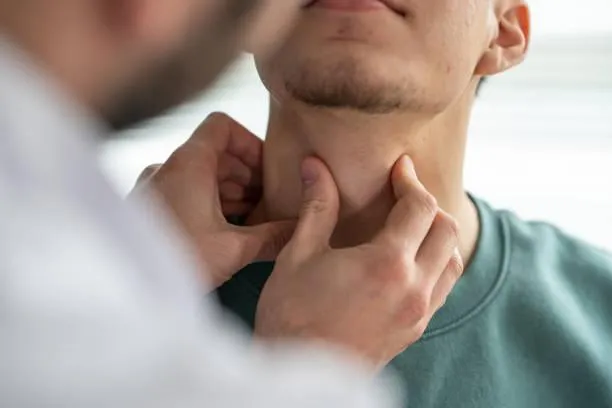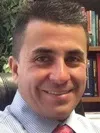Articles
Ear, Nose & Throat Care For Adults & Children Over 6 months
5420 Strickland Ave, Lakeland, FL 33812
Located In Hickman Office Park
Mon-Thu 8:30 am - 4:30 pm
Fri 8:30 am - 12:00 pm

Thyroid Nodules: What Are They and Should You Worry?
When you hear the term "thyroid nodule," it might sound concerning, especially if your doctor mentions finding one during a routine checkup. But before you start worrying, let’s dive into what thyroid nodules really are, why they form, and when it’s time to pay attention. In this article, we’ll break down the basics and give you a clear understanding of what’s going on with your thyroid and how you can take action if needed.
What Are Thyroid Nodules?
Thyroid nodules are lumps or growths that appear in the thyroid gland, a small butterfly-shaped organ located in the front of your neck. Your thyroid plays a crucial role in regulating your body’s metabolism, energy levels, and even mood. But sometimes, nodules can form, disrupting the smooth function of this important gland.
These nodules vary in size; some are so tiny that they can only be detected through an ultrasound, while others are large enough to be felt or even seen as a lump in the neck. Nodules can be:
Solid (filled with thyroid cells)
Cystic (filled with fluid)
Mixed (a combination of both)
While the presence of a nodule might sound scary, it’s worth noting that the vast majority of thyroid nodules are benign (non-cancerous) and don’t cause any symptoms. However, it’s important to keep an eye on them, as they can occasionally lead to complications.
Why Do Thyroid Nodules Form?
Understanding why thyroid nodules develop can help ease some of the anxiety surrounding them. There are several reasons why nodules form, and most have straightforward explanations:
Iodine Deficiency
Iodine is a key nutrient that your thyroid needs to produce hormones. In areas where iodine is lacking in the diet, the thyroid can struggle to function properly, leading to the development of nodules. Fortunately, iodine deficiency is rare in places where table salt is iodized.
Hashimoto’s Thyroiditis
This autoimmune condition is one of the most common causes of thyroid nodules. Hashimoto’s occurs when your immune system mistakenly attacks the thyroid, leading to inflammation. Over time, this inflammation can cause nodules to form as the thyroid gland tries to compensate for the damage.
Thyroid Adenomas and Goiters
Sometimes, the thyroid develops small benign growths called adenomas. These growths aren’t cancerous, but they can still lead to nodules. Similarly, a goiter—an enlargement of the thyroid gland—can also result in multiple nodules forming within the gland.
Thyroid Cancer
While it’s rare, thyroid cancer can present as a nodule. Fortunately, only about 5% of thyroid nodules are cancerous. However, this is why it’s essential to get any noticeable nodule evaluated by a healthcare professional, especially if you notice any changes over time.
Should You Be Concerned About Thyroid Nodules?
The question that often comes to mind when hearing about thyroid nodules is: “Should I be worried?” While most thyroid nodules are harmless, there are certain situations where you should pay closer attention.
Red Flags to Watch For
Not all nodules are created equal. Here are some warning signs that could indicate a more serious issue:
Rapid Growth: If a nodule is getting larger quickly, it’s time to see a doctor.
Hoarseness: A change in your voice that doesn’t go away could indicate that a nodule is pressing on your vocal cords.
Difficulty Swallowing or Breathing: If a nodule is large enough to interfere with swallowing or breathing, it needs to be evaluated.
Risk Factors
Certain factors make some people more likely to develop concerning thyroid nodules. These include:
Age: Nodules are more common as we age.
Family History: A family history of thyroid nodules or thyroid cancer increases your risk.
Radiation Exposure: Those who have had radiation treatments to the head, neck, or chest have a higher likelihood of developing thyroid nodules.
Diagnostic Tools
If you or your doctor find a nodule, don’t panic. There are several ways to determine whether it’s something to worry about:
Ultrasound: This imaging test provides a detailed look at the nodule’s size, shape, and structure.
Fine-Needle Aspiration Biopsy: A small sample of cells is taken from the nodule and examined for any signs of cancer.
Blood Tests: Tests to check thyroid hormone levels can help determine if the nodule is affecting the gland’s function.
How Are Thyroid Nodules Treated?
The treatment for thyroid nodules depends on the type, size, and potential impact they have on your health. Here are some common approaches:
Watchful Waiting
In many cases, especially with benign nodules that aren’t causing symptoms, your doctor might recommend simply monitoring the nodule over time. Regular checkups and ultrasounds can help track any changes.
Medications and Hormone Therapy
For some patients, medications that regulate thyroid hormone levels can help shrink nodules or prevent them from growing. This is especially helpful if the nodule is linked to conditions like Hashimoto’s thyroiditis.
Surgical Options
If a nodule is large, causing symptoms, or shows suspicious characteristics, surgery may be recommended to remove it. Thyroid surgery is a common and generally safe procedure, especially when performed by an experienced ENT specialist.
Radiofrequency Ablation (RFA)
For benign nodules that are symptomatic but don’t require surgery, RFA offers a minimally invasive option. This procedure uses heat to shrink the nodule, reducing its size and symptoms without the need for a more invasive procedure.
Conclusion
While the idea of having a thyroid nodule can be unsettling, the good news is that most are harmless and easily managed. Understanding what thyroid nodules are, why they form, and when to seek help empowers you to take control of your thyroid health. If you ever notice a lump in your neck or experience symptoms that concern you, don’t hesitate to reach out to a healthcare professional for an evaluation. With the right care and monitoring, you can keep your thyroid—and your peace of mind—in check.
Family Care Ear, Nose & Throat Physician

Dr. Herman Matallana, DO
Otolaryngology Specialist
Dr. Herman Matallana, known by his patients as Dr. Mat, is a dedicated physician with over ten years of experience in the treatment of Ear, Nose and Throat, Reconstructive Surgery and Allergies. Dr. Mat graduated from Kansas City University of Medicine and Bio-Sciences and did his specialization in Otolaryngology, Head & Neck and Reconstructive Surgery at Des Peres Hospital in St. Louis, MO.
What Our Clients Are Saying
What Our Clients
Are Saying

Dr Mat is a great doctor. He is attentive, caring, and best of all he listens to your concerns. His staff are all very polite, respectful and attentive to your needs. This is a doctor's office that work together as a team and they all know without a doubt what's going with each patient. Imñam very grateful that I was referred to Dr Mat.
Brenda B.
★ ★ ★ ★ ★

Dr Mat is AMAZING! He takes time to listen to your concerns and answer questions. My surgery was at Bartow Medical Center. The amount of respect the nurses and other staff members have for Dr Mat shows tremendously. They were amazing and they took phenomenal care of me.
Kylie S.
★ ★ ★ ★ ★

Dr. Matallana has been nothing but amazing for myself and my children. From tubes all the way to reconstructive surgery on my eldest child's nose. Outstanding doctor, outstanding care.
Jess W.
★ ★ ★ ★ ★




